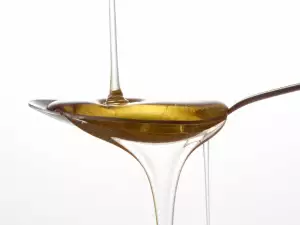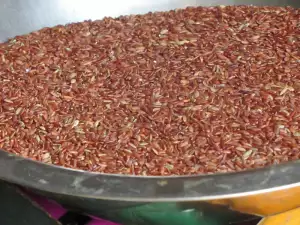Have you come across E965 and do you know what is hidden behind this designation? We're talking about a sugar substitute - the latter is one of the most harmful products, guilty of a number of diseases. What to happens from maltitol and is there any harm from it?
What exactly is maltitol?
Maltitol is a natural food additive. It is obtained from semi-finished maltitol syrup by heating and caramelizing it. The maltitol syrup itself contains 80% maltitol.
The remaining substances are mainly sorbates. Syrup is the result of simple chemical reactions - the hydrolysis of starch and its saturation with hydrogen.
The taste of the product is less sweet than sugar. It is still a caloric sweetener, but the calories are still twice as low as white sugar.

It is a very soluble product in water, but not so much in alcohol. During heat treatment, there are minor changes in its taste.
It can be found in white color or slightly yellowish. All countries have approved it for use.
The use of maltitol in diabetes mellitus deserves special attention. It can be used in any type as it covers the norms found in the disease. Its glycemic index is twice that of sugar and is absorbed slowly into the blood, which is important for diabetics. Obese people can also use it.
Not a suitable product for patients with hyperinsulinemia.
The substance is not perceived by the body as a fast carbohydrate and therefore the liver does not accumulate fat when it breaks it down.
It can be used with success by those who are addicted to sugar and want to get rid of it.
What are the benefits and harms of maltitol?

From the benefits, the most significant to note is that the sweetener maltitol does not affect blood glucose levels. It is also acceptable for obese people who need to avoid sugar. It does not damage the enamel of the teeth. It has no negative effects.
The permissible daily dose of maltitol is 90 grams. If exceeded, gas, bloating and indigestion may occur.
Excessive use can negatively affect carbohydrate metabolism. For diabetics, the daily dose should be determined by a doctor.




















Comments